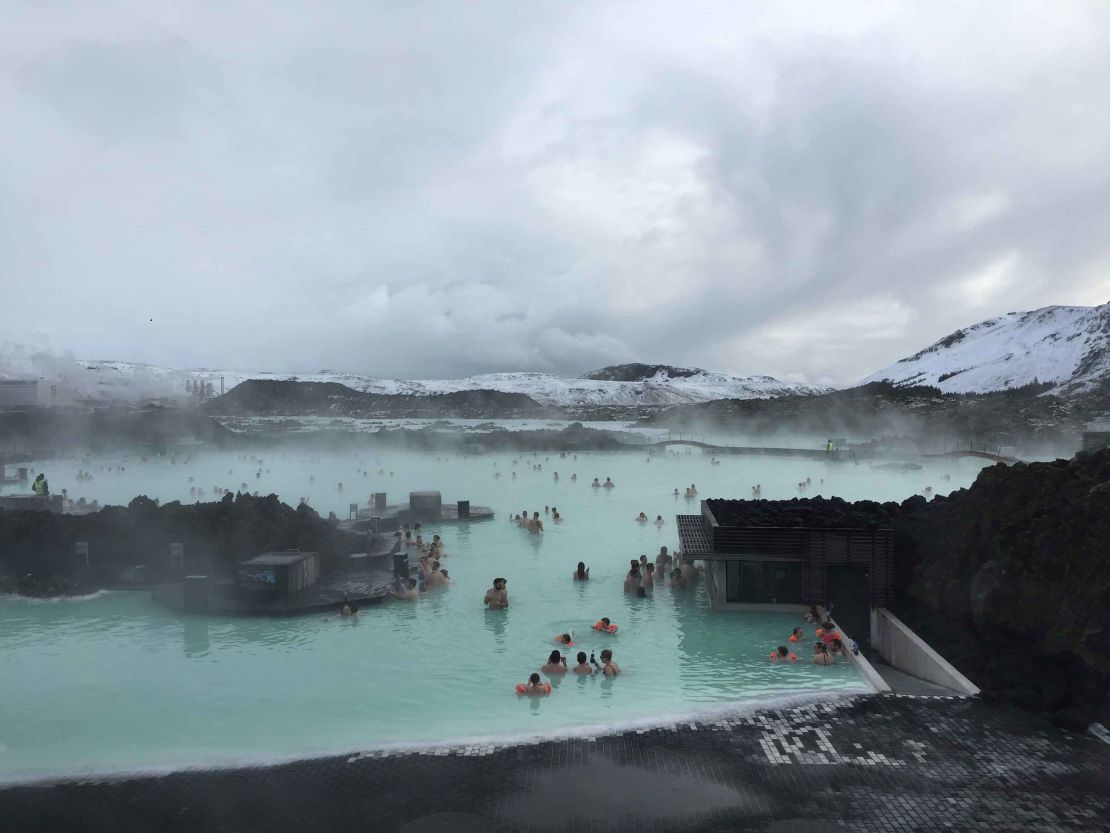Dr. Sanjay Gupta traveled the world in search of the secrets to living better. See what he discovered on “Chasing Life with Dr. Sanjay Gupta,” airing Saturdays at 9 p.m. ET/PT starting April 13.
Story highlights
Despite the harsh climate, Iceland often finds itself among the world's happiest countries
Researchers credit neighborhood pools, which break down social barriers
When it comes to socializing, England has its pubs. Italy has its piazzas. And Iceland has its pools.
On a snowy February afternoon, the outdoor West End pool in the capital city of Reykjavik was busy. Steam rose off the hot tubs, heated by Iceland’s vast geothermal network.
Laughter and chatting filled the air. This is Iceland’s meeting place. And in a country with minimal daylight in the long, gray winter, these pools might be the key to Iceland’s happiness.
Iceland’s natural surroundings, though stunning, can be harsh and desolate. Snow, sleet and rain blow wildly in the wind during the winter. The island’s population of 332,000 people, mostly centered around Reykjavik, hunkers down to wait it out, usually indoors.

But if they’re outdoors, you’ll find them in the pools and hot tubs that dot the country; nearly every neighborhood has one. Tourists tend to gather at the well-known Blue Lagoon. If you want to find the locals, you need a neighborhood pool. And this unique culture has drawn interest from researchers at the University of Iceland, including folklorist Valdimar Hafstein.
“At this point, it is considered more or less a civil right to have one (of these pools) within walking distance of your home,” he said. “It’s become a focus point of public life, really.”
Despite the harsh climate, Iceland often finds itself among the top three of the world’s happiest countries. Hafstein and his fellow researchers believe the pools are a big reason why.
“If you think of health and wellness not just as a matter of physical health and being free from disease but also the mental and social aspects, I think the geothermal heat and communal pools have a lot to do with that,” Hafstein said. “We feel good here. We know our neighbors, because we meet them in the pools. It creates a good vibe, and you feel at home in there.”
In the 1950s and ’60s, Iceland switched from coal-powered heat to geothermal, harnessing the power of the island’s volcanic activity. The infrastructure created by the switch allowed the formation of communal pools, which have been breaking down social barriers ever since.
“When we meet in the pool, we chat, and that’s a space of liberty where you’re at ease to talk to others,” Hafstein said. “People from all walks of life go to the pool. So you have, mixing in the same hot tub, people living in the area, whether it’s the professor or the student, construction worker or the businessman, the billionaire or car salesman – they all meet up.”
Follow CNN Health on Facebook and Twitter
There are some rules to observe. Don’t discuss anything too personal; keep it to broader social issues. Don’t shake hands; a simple nod will do. And make sure to shower thoroughly before and after getting in the pool. Icelanders take pool hygiene very seriously.
Hafstein has his own pool routine. Every Monday morning, he meets his friends at the West End Pool at 7 a.m., before work and the demands of life take over. They sit in one of the hot tubs, snow flurries falling on their heads, and talk about life – an experience as uniquely Iceland as this place and its people.







